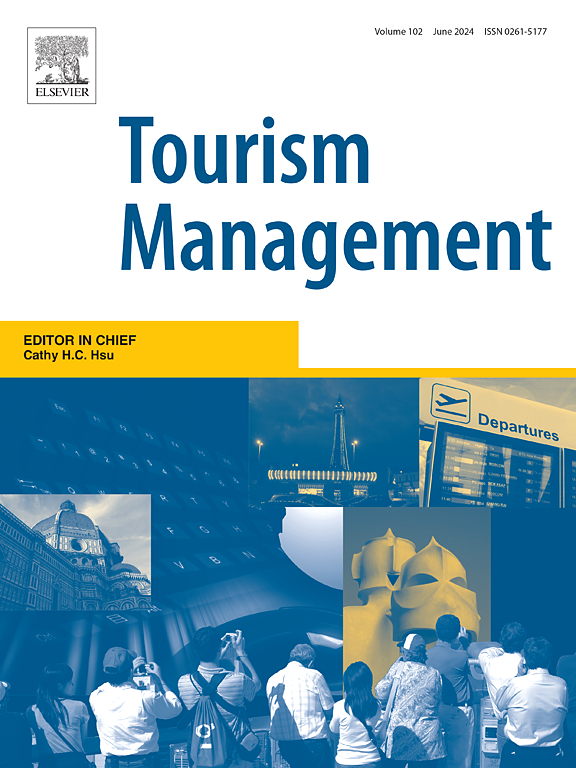“钱不是万能的,但是没有钱,什么都不是!”财务稀缺心态对酒店员工服务创新行为的不利影响
IF 10.9
1区 管理学
Q1 ENVIRONMENTAL STUDIES
引用次数: 0
摘要
本文运用工作需求-资源(JD-R)理论和资源守恒(COR)理论,研究了酒店服务员工的财务稀缺性思维如何以及在什么情况下影响其服务创新行为。采用三波双源问卷调查法,对中国东南沿海地区18家高档酒店的471名一线服务人员及其主管进行了问卷调查。我们的研究结果表明,财务稀缺心态触发了酒店服务员工的认知聚焦反刍和情感聚焦反刍。这两种形式的反刍都会导致服务员工的心理枯竭,从而抑制其服务创新行为。然而,家庭支持作为一种外部资源补充,减轻了财务稀缺心态对认知聚焦反刍和情感聚焦反刍的影响。这项研究提供了一个微观层面和细致入微的视角,对低收入服务员工在酒店业面临的社会经济结构挑战。此外,通过阐明财务稀缺性心态塑造服务相关行为的反刍和耗竭的一系列中介机制,本研究促进了我们对酒店管理文献中金钱心理的理解。本文章由计算机程序翻译,如有差异,请以英文原文为准。
“Money is not everything, but without money, everything is nothing!” The detrimental impact of financial scarcity mindset on service innovation behavior among hospitality employees
Drawing on the job demands–resources (JD-R) theory and conservation of resources (COR) theory, we investigate how and when the financial scarcity mindset among hospitality service employees influences their service innovation behavior. Utilizing a three-wave and two-source questionnaire survey method, we collected data from 471 frontline service employees and their supervisors at 18 upscale hotels located in the southeastern coastal region of China. Our findings reveal that the financial scarcity mindset triggers both cognition-focused rumination and affect-focused rumination among hospitality service employees. Both forms of rumination subsequently lead to the psychological depletion of service employees, which in turn inhibits their service innovation behavior. However, family support, as an external resource supplement, mitigates the impact of the financial scarcity mindset on both cognition-focused rumination and affect-focused rumination. This study offers a micro-level and nuanced perspective on the socio-economic structural challenges faced by low-income service employees in the hospitality industry. Furthermore, it advances our understanding of the psychology of money in hospitality management literature by elucidating the serial mediating mechanisms of rumination and depletion through which the financial scarcity mindset shapes service-related behaviors.
求助全文
通过发布文献求助,成功后即可免费获取论文全文。
去求助
来源期刊

Tourism Management
Multiple-
CiteScore
24.10
自引率
7.90%
发文量
190
审稿时长
45 days
期刊介绍:
Tourism Management, the preeminent scholarly journal, concentrates on the comprehensive management aspects, encompassing planning and policy, within the realm of travel and tourism. Adopting an interdisciplinary perspective, the journal delves into international, national, and regional tourism, addressing various management challenges. Its content mirrors this integrative approach, featuring primary research articles, progress in tourism research, case studies, research notes, discussions on current issues, and book reviews. Emphasizing scholarly rigor, all published papers are expected to contribute to theoretical and/or methodological advancements while offering specific insights relevant to tourism management and policy.
 求助内容:
求助内容: 应助结果提醒方式:
应助结果提醒方式:


